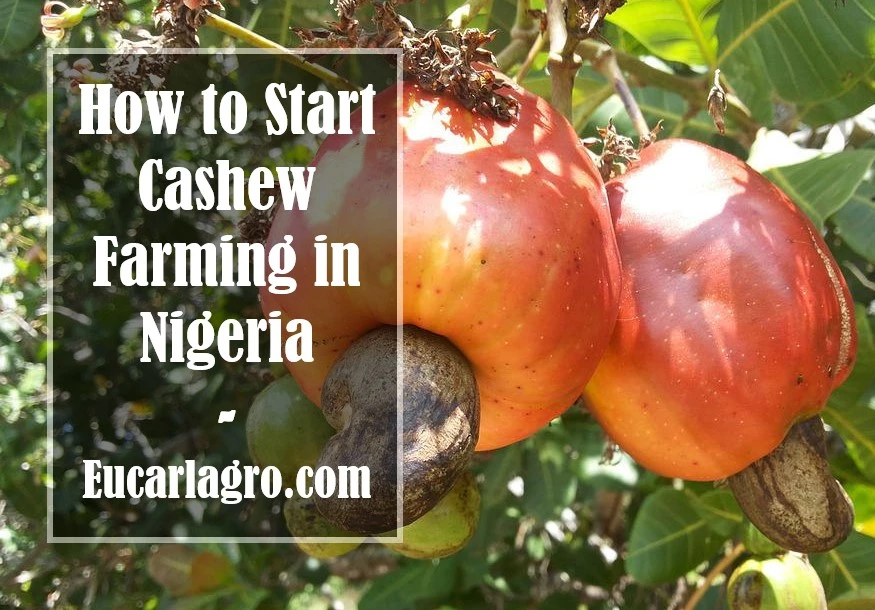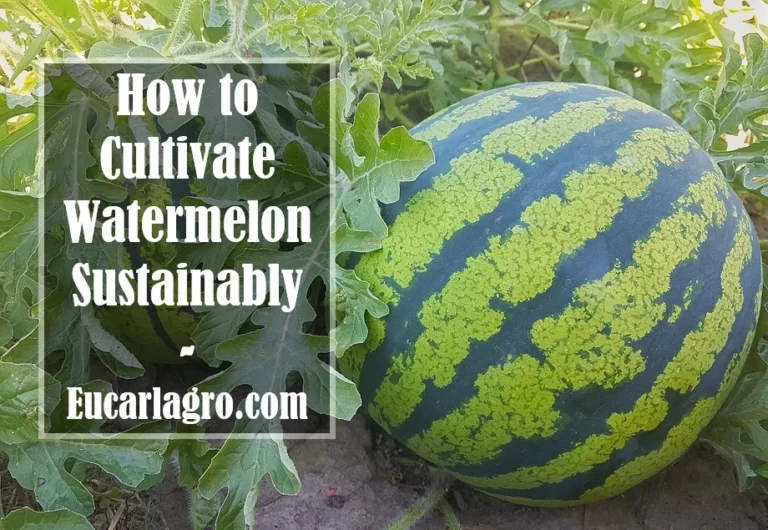How to Start Cashew Farming in Nigeria
If you don’t become involved in cashew farming in Nigeria or get close to a dealer, you’ll never realize it’s a moneymaker. Cashew exportation is a major source of income for Nigeria as a whole. Ivory Coast, Tanzania, Burkina Faso, Ghana, and Mozambique are the top five producers of raw cashew nuts in Africa at the moment, according to the cashew association.
Processing or roasting cashews is more profitable than selling them raw, with a 1:10 ratio. That’s why Nigerian Agriculture Minister announced that the country would stop selling raw cashew nuts in 2019 and instead process/roast them to save money on exporting the nuts.
Exporting 500,000 tons of raw cashews would put Nigeria in second place among exporters, but the country is well short of that goal. As an investor or entrepreneur, you can play a role in achieving this aim by investing in Cashew Cashew Farming in Nigeria today..

How To Start Cashew Farming In Nigeria: Step By Step Guide
The idea that agriculture is a business rather than a hobby was floated to me once, and I couldn’t believe it. That’s why we are writing this piece in the first place. Remember, the Importance of Agriculture in Nigeria we discussed earlier?
You’ll learn how to start a successful Cashew Farming in Nigeria by following this tutorial. The company is not a get-rich-quick scheme; it takes three years to make a splash, but the wait is well worth it. It takes a lot of money to cultivate and harvest it.
The Land Setting Up
Because land is a long-term investment, we don’t recommend you lease it. As a result, buy land in the village and secure it with the proper paperwork. In order to get the greatest results, you should use sandy laterite soil. Cut down trees and shrubs to make room for new growth.
Prepare the ground by plowing it and leveling it with machinery. It is necessary to test the soil first to determine its nutrient level before mixing the sand with animal excrement. It is possible to cultivate cashews in both the wet and dry tropics.
Planting
Cashew seed planting is just as difficult as coffee and oil palm seed planting. Click here to learn more about oil palm farming. So, it’s best to buy seedlings that have sprung from a reputable nursery that stocks high-quality varieties. The seedlings of propagated plants are ready in three years, whereas direct seed sowing takes five years.
Similar to orange farming, where seeds planted directly yield fruit that is inferior to the parent plant, cashew trees that are developed from seeds of a specific tree have inferior flavor and fruit.
The grafted ones are best for commercial use. If you wish to do your own planting, you can do it in pots or directly into a bed that has already been prepared. Two to three centimeters deep, insert a handful of seeds.
After a few days, the seeds will begin to sprout in the nursery. Like with coffee growing, you should always use fresh seeds in your crops. First-day viability lasts up to four months, and then decline begins. For three days, expose the seeds to the sun’s rays.
Before planting the next day, soak them in water overnight. These planting distances can still be used, notwithstanding the general spacing of 7m x 9m.
You can get 100 seedlings per hectare by planting 8m x 5m.
7.5 x 7.5 will give 175 per hectare
8m x 8m will give you 156 per hectare
You can intercrop with cassava, plantain, pineapple, and other tropical fruits while the cashew tree is still young.
Fertilization
There are many stages in a cashew plant’s life cycle where it needs nutrients. Fertilize them not only during the growing stage but also during the fruiting and flowering stages. Fertilize with nitrogen, phosphorus, and zinc nutrients.
A mature cashew tree needs 15 kg of farmyard manure applied to it once a year to keep it healthy. During the dry season or when draught comes in during the wet season, you should irrigate your cashew field. Regular and proper watering is essential for increased fruit production.
Throughout the rainy season, don’t worry about watering the plants; nevertheless, during the dry season, irrigate them once or twice weekly. The ideal temperature for Cashew Farming in Nigeria is between 25C and 30C. Every day, six hours of direct sunlight are required. It’s a no-win situation if you plant them in partial shade.
Cashew Farming Pruning/Mulching
Cashew plants are pruned in the same manner as hibiscus plants, removing entangled branches and removing overgrown areas so that straight branches can grow.
Compost manure can be used to minimize weeds and conserve water by mulching the entire farm.
Pest/Diseases
Like most agriculture businesses, Cashew Farming in Nigeria is not left with its pets too. These pests include the root and stem borer, tea mosquito, and leaf miner. Twig and foray shoot dieback, root rot, and other diseases Use insecticides and herbicides and grow resistant plants.
To discover how to utilize neem oil to combat pests and diseases, you may need to read up on pepper growing.
Finding Out Why You Should Farm Cashews
It’s a long-term investment with high returns, with a lifespan of up to 50 years. The cashew nut is the most valuable cashew product. However, you can make more money by processing the apple into fruit juice.
Due to great demand and an increasing price per year, the nuts are highly profitable.
Because the vast majority of those involved in the trade-in of cashew nuts are exporters, the price of these nuts is almost always set in US dollars.
Seasonal Harvesting and Drying of Cashews
Late in January, the ripe fruit begins to fall to the ground. Make sure the area around the trees is clear before the trees begin to drop their fruit.
Clear the area around the tree of grasses and other weeds so that the raw cashew nuts can be easily collected. As soon as the fruit begins to fall, it signifies that it has ripened. To keep the quality from deteriorating, collect the nuts as soon as they fall, within two to three days.
To remove the apple from the nut, use a sharp knife. The quality of the product would be harmed if the nuts were not properly detached. On a clean surface, rotate them often to ensure even drying. To avoid rotting, do not dry them indoors, as this will delay the drying process.
Because of rust, do not additionally dry them on a metallic surface. A rattling sound is produced when the nuts are fully dry. Carry them inside at night to prevent moisture from getting into the nut during the drying process.
Cashew Nuts Storage
Stitch the jute bag to keep it from spoiling instead of storing it in containers, sacks, plastic, or anything else. Assemble the bags in a dry, well-ventilated area. Don’t put them on the floor since dampness from the floor could ruin them.
To prevent deterioration, keep the nuts fresh by selling them within a year of harvesting and allowing 0.5 meters of space between each bag.
Marketing
Cashew Farming in Nigeria is among the easiest agriculture to market. One can easily locate companies in Lagos that purchase them for export. In Nigeria, Indian cashew companies are well-represented by local businessmen.
Also, you have the option of making direct sales to foreign customers. To begin, search for cashew nut buyers on websites like Alibaba, and you’ll be shown a list of potential customers. Any of them who catches your eye can be approached for a deal.
There are a number of ways in which you can sell your product without having to go through all of this. Processed goods, however, are where the real money lies. When compared to the processed kernels, raw cashew nuts are a significantly less popular option.
Read Also: How to Cultivate Watermelon Sustainably
Conclusion
Cashew Farming in Nigeria remains a lucrative and profitable business. About 90% of Nigeria’s cashew production is exported as kernels, with 60% of that going to Vietnam. Almost every state in the country has the ability to grow cashew, according to the Association of Cashews, thus location is never an issue in this business.
Rough cashew nuts cost about $1,200 per pound while roasted cashew nuts sell for about $10,000. Non-foreign exchange earnings from cashew in Nigeria are second only to cocoa (NCAN)



![23 Agricultural Products You Can Export From Nigeria ([year]) Agricultural Products You Can Export](https://eucarlagro.com/wp-content/uploads/2023/11/23-Agricultural-Products-You-Can-Export-From-Nigeria-768x576.jpg)

